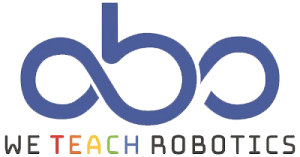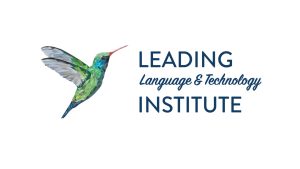Introduction
The aim of the experience-based training is to give participants an insight into the use of educational robots in the classroom, in line with the latest trends.
Participants will learn about the potential of robots that can be programmed without a computer to develop skills and to facilitate differentiated, playful learning.
The robots can be used from 6 to 18 years old thanks to their different programming possibilities.

Description
Simple educational robots are nowadays an integral part of the educational process. From kindergarten to secondary school, there are many robots for all ages that can be integrated into lessons, development activities or leisure activities to make teaching more playful, motivate children and enable informal teaching methods. The use of robots develops children’s 21st century skills, such as flexible and algorithmic thinking, and collaborative skills.
You can use or create tasks adapted to the robot you are using in any subject, so you can use the robots to learn new material, practice, differentiate, personalise, relax, energise, etc.
However, it is difficult for teachers to navigate the extremely rich and almost daily expanding range of educational robots, especially if they are just starting to use them.
The training will help you navigate between the educational robots. Participants can encounter touchscreen, tethered track or free-moving, line-following robots. We will introduce robots that can be programmed using different methods, such as colours, buttons, instruction cards, or QR or barcodes. We will also show examples of playful collaboration between robots and AI, control from a mobile app and block or text programming.
The many different programming methods offer the opportunity to choose and use a variety of tools appropriate to children’s age and programming skills. Guided by experienced trainers, participants will work with robots that are applicable in their own teaching practice and will be guided in their daily use.
Learning objectives
The aim of the training is to prepare participants to use programmable robots without a computer to effectively integrate experiential learning into their daily teaching practice, develop children’s key competences, algorithmic thinking and 21st century skills. They will learn how to use the educational robots they have learned for a variety of purposes: warming up, relaxation, energising, learning new material or practising what they have learned, etc.
Participants of the training
- Get to know at least 5 different educational robots and their multi-level programming capabilities
- Learn about differentiated development of algorithmic thinking, spatial orientation, teamwork, reasoning and advocacy
- They will learn about the different offline programming of robots
- Become familiar with application-based, block or text-based programming of robots (according to the age and abilities of the children taught)
- Learn in detail how to use the student task sheets and teacher guides available for each robot
- Master the possibilities of creating teaching materials for the robots they learn
- Gain experience in the use of educational robots in schools
- Learn about international experience in the use of educational robots and the latest trends
- Join the international community of educational robot users to share experiences and knowledge
Methodology and assessment
Experience-based training, delivered by Abacusan Studio experts – experienced trainers who have been using the educational robots presented for years, creating task collections for them and teaching them in training courses.
The method can be used by any professional teacher, special education teacher, day-care or leisure programme leader, librarian or museum educator, working with children aged 5-18.
No prior knowledge of robotics or programming is a prerequisite for the training. The training will improve the participants’ knowledge through a series of practical exercises and interactive presentations using the robots’ developed task sheets.
The robots will be programmed without a computer or in an icon/block programming environment, which will allow beginners to experience success and learn easily and quickly.
Thematics:
Day 1
- Getting to know each other, team building
- Place and role of educational robots in the teaching process
- Types of offline programmable robots
- Learning about screenless robot coding kits
Day 2
- Learning about robots programmable by colours
- Practical experience of using task sheets
- Further programming possibilities for the robots you learn – using applications
- Differentiation, individualised development and talent management
Day 3
- Exploring the latest robots supporting screen-free coding
- Exploring robots using artificial intelligence
- Opportunities to develop algorithmic thinking, creativity and social skills
Day 4
- Visit to a school session using educational robots
- Analysis and discussion of what we have seen
Day 5
- More programming options for the robots you learn – learning about block or text programming options
- Possibilities for task interoperability and compatibility
Day 6
- Description of the proposed timetable of activities
- Workshop: planning your own tasks
- Experiences with the international use of educational robots
- Possibilities of using educational robots in the pedagogical practice of the participants
- Evaluation, closing, receiving certificates
Assessment, condition for issuing a certificate:
- Participation in all training lessons
- Completion of workshop assignment
Language
English, Hungarian
Target audience ISCED
ISCED0
ISCED1
ISCED2
ISCED3
Who is it for
- Teacher
- Student teacher
- Head teacher/Principal
- ICT Coordinator
- Librarian
- Pedagogical Advisor
- Teacher Educator
- NGO staff
Related subjects
- School preparatory courses
- IT/Digital culture
- Mathematics
- Sciences
- Literature
- History
- Languages
- Life skills
Prior knowledge
- English B2
- Basic IT skills
- No prior knowledge is needed in programming or robotics
Package contents
- Course (6 days, 5 hours/day)
- Tools and equipments (robots, laptop)
- Printed materials, downloadable teaching materials
- Visit to school (preparation, transport)
- Coffee breaks (coffee, tea, snacks)
- Certificate, Europass, documentation
- Sightseeing or cultural program (depending on weather, 3 hours long)
- We can assist with lodging arrangements, meal planning, and organizing local activities for a supplementary fee.
Learning time
6 days (30 hours)
Course fee
570 €
Date:
- 17-22. 03. 2025., Budapest
- 07-12. 04. 2025., Budapest
- 13-18. 05. 2025., Metz
- 26-31. 05. 2025., Budapest
- 07- 02.08. 2025., Avilés
- 06-11. 10. 2025., Metz
- 27-31. 10. 2025., Budapest
- 24-29. 11. 2025., Avilés
Registration:




